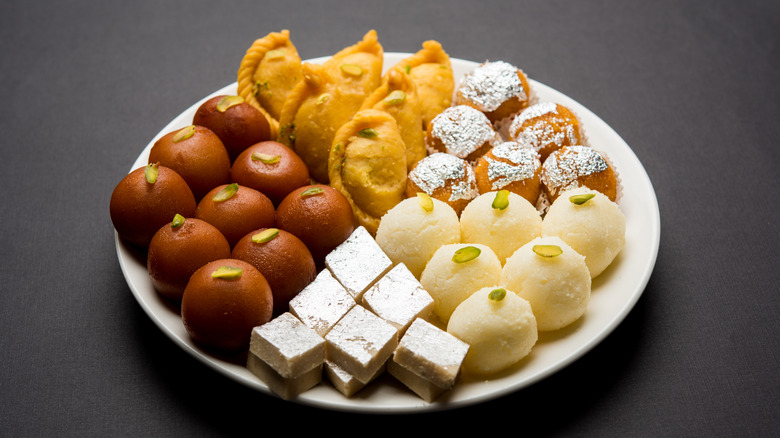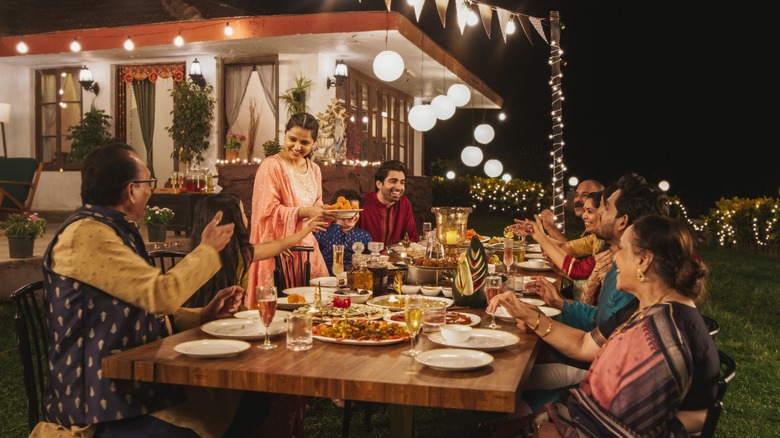Celebrate Diwali With A Spread Of Quintessential Mithai Sweets
Diwali is an annual five-day festival of lights celebrated in Hinduism, Jainism, and Sikhism, and typically symbolizes the triumph of good over evil, and light over darkness. Celebratory traditions often include decorating homes with diyas (small oil lamps), performing specific rituals on each of the five days, visiting family and friends, exchanging gifts, and indulging in an array of sweet treats known as mithai.
Sharing sweet foods during many holidays and religious observances is a tradition that brings joy and serves as an expression of love and gratitude. This is why Diwali is abundant in sweets. It is customary for families to congregate prior to Diwali to make a copious amount of mithai sweets in preparation for the festival. Distinct from Western sweets, which often rely on sugar and butter as base ingredients, mithai is crafted from diverse flours, rice, legumes, and sometimes even vegetables. These components are flavored with a rich tapestry of spices and nuts, and liberally sweetened. Mithai is also characterized by its small, bite-sized portions and the extensive variety of types available.
Never too much mithai
Halwa, a type of Indian pudding that is chewy in texture, is a mithai particularly favored during Diwali. It is made from ghee (also known as liquid gold), milk, sugar, and cardamom, though numerous variations exist. Laddoo, another delight, is a deep-fried sphere of gram flour blended with ghee, nuts, and spices, all soaked in a sweet syrup. Barfi, typically made from milk, often incorporates nuts, fruits, and aromatic spices such as cardamom; it also sometimes includes rose water to enhance its creaminess. Gulab jamun, one of India's most renowned sweets, is also savored during Diwali. These golden, fried dough balls are bathed in a syrup infused with cardamom, saffron, and rosewater, and served warm.
Diwali is celebrated globally, so there are literally hundreds of mithai to choose from; some enjoy popularity across India during Diwali, while others are regional favorites. In Indian culture, mithai is not exclusively reserved for Diwali, but is shared during all manner of celebrations and events that symbolize joy, gift-giving, and community. While it is a staple for the Diwali holiday, do not hesitate to prepare mithai whenever you have joyous news to celebrate.


